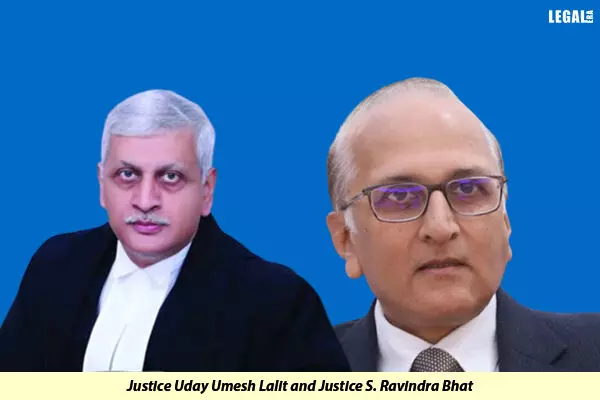- Home
- News
- Articles+
- Aerospace
- Artificial Intelligence
- Agriculture
- Alternate Dispute Resolution
- Arbitration & Mediation
- Banking and Finance
- Bankruptcy
- Book Review
- Bribery & Corruption
- Commercial Litigation
- Competition Law
- Conference Reports
- Consumer Products
- Contract
- Corporate Governance
- Corporate Law
- Covid-19
- Cryptocurrency
- Cybersecurity
- Data Protection
- Defence
- Digital Economy
- E-commerce
- Employment Law
- Energy and Natural Resources
- Entertainment and Sports Law
- Environmental Law
- Environmental, Social, and Governance
- Foreign Direct Investment
- Food and Beverage
- Gaming
- Health Care
- IBC Diaries
- In Focus
- Inclusion & Diversity
- Insurance Law
- Intellectual Property
- International Law
- IP & Tech Era
- Know the Law
- Labour Laws
- Law & Policy and Regulation
- Litigation
- Litigation Funding
- Manufacturing
- Mergers & Acquisitions
- NFTs
- Privacy
- Private Equity
- Project Finance
- Real Estate
- Risk and Compliance
- Student Corner
- Take On Board
- Tax
- Technology Media and Telecom
- Tributes
- Viewpoint
- Zoom In
- Law Firms
- In-House
- Rankings
- E-Magazine
- Legal Era TV
- Events
- Middle East
- Africa
- News
- Articles
- Aerospace
- Artificial Intelligence
- Agriculture
- Alternate Dispute Resolution
- Arbitration & Mediation
- Banking and Finance
- Bankruptcy
- Book Review
- Bribery & Corruption
- Commercial Litigation
- Competition Law
- Conference Reports
- Consumer Products
- Contract
- Corporate Governance
- Corporate Law
- Covid-19
- Cryptocurrency
- Cybersecurity
- Data Protection
- Defence
- Digital Economy
- E-commerce
- Employment Law
- Energy and Natural Resources
- Entertainment and Sports Law
- Environmental Law
- Environmental, Social, and Governance
- Foreign Direct Investment
- Food and Beverage
- Gaming
- Health Care
- IBC Diaries
- In Focus
- Inclusion & Diversity
- Insurance Law
- Intellectual Property
- International Law
- IP & Tech Era
- Know the Law
- Labour Laws
- Law & Policy and Regulation
- Litigation
- Litigation Funding
- Manufacturing
- Mergers & Acquisitions
- NFTs
- Privacy
- Private Equity
- Project Finance
- Real Estate
- Risk and Compliance
- Student Corner
- Take On Board
- Tax
- Technology Media and Telecom
- Tributes
- Viewpoint
- Zoom In
- Law Firms
- In-House
- Rankings
- E-Magazine
- Legal Era TV
- Events
- Middle East
- Africa
Supreme Court rules against High Court's order

Supreme Court rules against High Court's order
It had held that the Commissioner of Income Tax (Appeals) had erred in deleting the additional amount paid under the IT Act
A two-judge bench of the Supreme Court comprising Justice Uday Umesh Lalit and Justice S. Ravindra Bhat has held that a High Court is not justified if without discussing the issues arising for consideration, it disposes of a tax appeal with a one-paragraph order.
The assessing officer (AO) had passed an order adding Rs.7,78,00,000 to the total income of the assessee. The order was challenged before the Commissioner of Income Tax (Appeals), who found that an amount of Rs.6,36,50,000 (out of Rs.7,78,00,000) was properly explained by the assessee. But the balance amount of Rs.1,41,50,000 had not been clarified. Therefore, the CIT (A) sustained the additional amount.
Earlier, on an appeal, the High Court had held that both CIT(A) and the tribunal had erred in deleting the addition of Rs.1.95 crore that was paid under the Income Tax Act.
Thereafter, the appeal was made to the Supreme Court, which granted relief to the department. It held, "The High Court was not justified in disposing of the appeal with a one-paragraph order without discussing the issues which arose for consideration."
"We, therefore, remit the matter back to the High Court for fresh consideration. The Income Tax appeal is restored to be decided afresh on its own merits," the court added.



